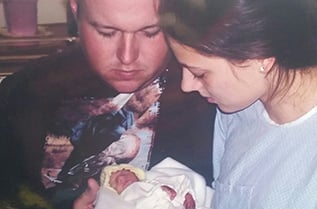This panel includes quantification of the activity of 13 enzymes.
3 weeks
82657 x5
$1,000
Lysosomal storage disorders are a broad group of diseases composed of a variety of sub-groups of disorders, such as the mucopolysaccharidoses, the glycoproteinoses, and the sphingolipidoses. A lysosomal storage disease can present in a number of different ways. Infants or children may have growth failure, developmental regression, corneal or lens clouding, hepato- and/or splenomegaly, coarsening facial features and skeletal abnormalities. Some disorders are more likely to have a neurological presentation or present in adults. While a diverse group, different storage diseases may have similar clinical features, thus it may be necessary to measure a number of different enzyme activities prior to finding the one deficient in a particular patient.
Enzyme testing may be ordered as follow-up to abnormal urine screening or as a first tier testing. Enzyme analysis and demonstrating deficient activity is considered the gold-standard in diagnosing lysosomal storage disorders.
The lysosomal enzyme panel requires 7-10 ml of whole blood collected in a sodium heparin (green-top) tube. Please note that Krabbe and Niemann Pick A/B enzyme analysis are performed in dried blood spots that are prepared in our lab from the whole blood sample.
Whole blood should be sent over overnight at ambient temperature. Do not freeze whole blood. Samples for enzyme analysis must arrive at the lab the next day. Cultured fibroblasts can be sent overnight at room temperature.
Call our laboratory at 1-800-473-9411 or contact one of our Laboratory Genetic Counselors for assistance.
Robin Fletcher, MS, CGC
Falecia Thomas, MS, CGC
Alex Finley, MS, CGC
